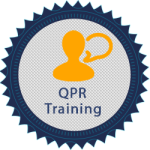Base
| Name | Tirza Leader |
| Faculty, Staff, or Student? | |
| GGC Email (required) | |
| Bio | I have a PhD in social psychology with over ten years of teaching experience in higher education. I regularly teach research methodology at the upper undergraduate level, and have given professional methodology workshops to national and international audiences. I study cognitive mechanisms that may explain why people engage in prejudicial behaviors. I also explore the role of language on prejudice, and how the words that we use change how we feel about others. However, I like to look for interdisciplinary solutions to prejudice, and tend to borrow from other fields of psychology (e.g., cognition, forensics, sports) and other areas of social science (e.g., anthropology, sociology). I was the head of a faculty led consultancy group at the University of Kent. During this time I designed, implemented, and analyzed various assessments for government agencies (e.g., Community and Local Government, Kent Police Authority, and the Economic and Social Research Council), and private business (e.g., Pfizer, 3A Business, and TetraPak). Project designs included literature reviews, assessments of employees initiatives, and evaluation of the effectiveness of national campaigns. Since leaving the UK, I have continued working as a methodological consultant on grants (e.g., NSF, and GA Board of Regents), and for non-profits (e.g., GA Coalition against Domestic Violence, and Oak Meadow Montessori). |
| Scholarship/Publications | Leader, T., & Mullen, D. (2017). TTalk bluntly and carry a pointy stick: Violence and verbal complexity in Buffy the Vampire Slayer (pgs. 60-73). In T. Girardi & A. Scheg (Eds.), Heroes or villains: Essays on dark protagonists of television. Jefferson, NC: Mcfarland. Booth, R., Leader, T., & Sharma, D. (2016). The age of anxiety? It depends where you look: changes in STAI trait anxiety, 1970-2010. Social Psychiatry and Psychiatric Epidemiology, 51(2), 193-202. Awong-Taylor, J., Runck, C., D’Costa, A., Pursell, D., & Leader, T. (2016). Undergraduate research for all: Addressing the elephant in the room. The Council for Undergraduate Research Quarterly, 37(1), 11-19. Gannon, T., Terriere, R., & Leader, T. (2012). Ward and Siegert’s pathways model of child sexual offending: A cluster analysis evaluation. Psychology, Crime and Law, 18, 129-153. ISSN 1068-316X Leader, T., Mullen, B., & Rice, D.R. (2009). Complexity and valence in ethnophaulisms and exclusion of ethnic out-groups: What puts the “hate” into hate speech? Journal of Personality and Social Psychology, 96, 170-182. doi: 10.1037/a0013066 Randsley de Moura, G., Leader, T., Pelletier, J. (2008). An examination of research in group processes and intergroup relations. Group Processes and Intergroup Relations, 11, 575-596. Leader, T., Mullen, B., & Abrams, D. (2007). Without Mercy: The immediate impact of group size on lynch mob atrocity. Personality and Social Psychology Bulletin, 33, 1340-1352. Published Reports Abrams, Leader & Rutland (2009). Black Role Models: Which Messages Work? Key Findings from the REACH Experiment. Department of Communities and Local Government. Leader & Abrams (2009). Project Sphinx: Final report. Kent Police Authority. Leader, Abrams, Rutland & Benbow (2009). An Experimental Test of the Impact of Black Role Models for the REACH Programme. Department of Communities and Local Government. Wardrop, Leader & Abrams (2009). DCLG Community Cohesion Evaluation Research: Literature Review. Department of Communities and Local Government. Abrams, Rutland, Leader & Benbow (2008). Report on the Pilot Phase of the REACH Role Model Project. Department of Communities and Local Government. |

